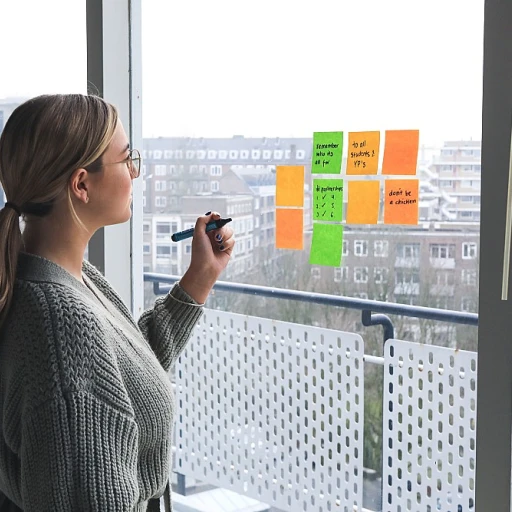Understanding Employee Experience Consulting
Defining the Value of Employee Experience Consulting
Organizations are increasingly recognizing the importance of crafting a memorable employee experience as a vital component of business success. Employee experience consulting involves strategic efforts to transform the work environment to foster higher engagement and satisfaction across all levels. These consulting services help organizations re-evaluate their approach, focusing on how employees feel throughout their journey in the company. Employee experience consulting offers organizations insights into the factors that motivate and engage their workforce. By employing various strategies, these consultants seek to align the organizational culture with employee needs, resulting in positive employee engagement and increased retention rates. The ultimate aim is to create an atmosphere that promotes exceptional employee performance and satisfaction, positively impacting the overall organizational culture. For example, implementing innovative tools like UltiPro Onboarding can streamline new hires' experiences, effectively integrating them into the organization while enhancing retention and productivity. Such solutions are part of a broader experience strategy that seeks to improve each employee's journey from onboarding to daily work routines. In this dynamic field, experienced consultants play a pivotal role in guiding businesses through the nuances of change management and experience management, setting the stage for transformative organizational growth. The insights gained through these engagements can lead to marked improvements not only in employee engagement but also in customer experience, resulting in a more vibrant, enthusiastic, and productive organizational environment.The Role of Technology in Employee Experience
Leveraging Technology for a Better Workplace
In today's rapidly evolving business landscape, technology plays a pivotal role in shaping the employee experience. Organizations are increasingly turning to digital tools to enhance how employees feel about their work environment, aiming to foster a culture of engagement and satisfaction. By integrating technology into employee experience strategies, businesses can create more personalized and efficient experiences for their workforce.
Digital Tools and Platforms
Various digital platforms are available to help organizations improve employee engagement and satisfaction. These tools can streamline communication, facilitate feedback, and provide insights into employee experiences. For instance, employee engagement platforms can offer real-time feedback and analytics, enabling management to make informed decisions that align with their organizational culture and strategy.
Enhancing Communication and Collaboration
Effective communication is crucial for a positive employee experience. Technology facilitates seamless communication across different levels of an organization, breaking down silos and fostering collaboration. Tools like instant messaging apps, video conferencing, and collaborative platforms help employees stay connected, regardless of their physical location. This connectivity is vital for maintaining a cohesive organizational culture and ensuring that employees feel valued and heard.
Personalized Employee Experiences
Technology allows for the customization of employee experiences, catering to individual needs and preferences. By leveraging data analytics, organizations can gain insights into employee behavior and preferences, enabling them to tailor experiences that resonate with their workforce. This personalized approach not only boosts employee satisfaction but also contributes to higher retention rates and a more engaged workforce.
Streamlining Onboarding and Training
Onboarding and training are critical components of the employee experience. Technology can streamline these processes, making them more efficient and effective. For example, a comprehensive meta welcome kit can provide new hires with all the necessary information and resources they need to succeed in their new roles. This approach not only enhances the onboarding experience but also sets the stage for long-term employee engagement and success. For more insights, consider exploring thoughtful gifts to welcome new employees.
Driving Change Through Technology
Implementing technology-driven employee experience strategies requires careful change management. Organizations must ensure that their workforce is equipped to adapt to new tools and processes. This involves providing adequate training and support to help employees transition smoothly. By embracing technology, businesses can drive meaningful change and create a more dynamic and responsive work environment.
Key Challenges in Implementing Employee Experience Strategies
Overcoming Barriers in Experience Implementation
Implementing employee experience strategies is not without its obstacles. Companies face numerous difficulties that can affect the successful execution of these transformational initiatives. One of the most common challenges is the resistance to change within the organizational structure. Many businesses experience opposition from employees who are accustomed to long-established routines and are hesitant to embrace new strategies.
Moreover, aligning the company's culture with the new employee experience strategy is often a daunting task. It's essential for organizations to not just introduce new processes but to cultivate a shift in mindset that gears everyone towards a positive employee experience. This means ensuring that all levels of the organization, from management to frontline workers, are engaged and committed to the change management process.
Another significant challenge is the integration of technology. Organizations must navigate the complexities of incorporating the right technological tools that support and enhance employee engagement. The technology adopted should align with the desired outcomes and be easy for employees to use, thereby improving employee satisfaction and promoting exceptional employee experiences.
Financial constraints can also limit the implementation of comprehensive strategies. Some organizations struggle to allocate resources to these initiatives, prioritizing short-term gains over long-term benefits. However, investing in experience consultants and consulting services can help businesses overcome these financial hurdles by providing tailored insights and strategic guidance.
Furthermore, there is the critical aspect of measuring the effectiveness of these strategies. Without properly assessing the impact, it becomes challenging to justify continued investment. Consequently, utilizing tools like 360-degree feedback can offer valuable customer and employee insights, ultimately aiding in fine-tuning the experience strategy.
Successfully overcoming these barriers requires a commitment to fostering engaged employees and creating an organizational culture that values innovation and continuous improvement. Real-life case studies of successful transformations serve as a testament to the benefits of these efforts, highlighting how comprehensive strategies can lead to improved employee retention and an increasing focus on a positive customer experience.
Measuring the Impact of Employee Experience Initiatives
Assessing and Quantifying Employee Experience Initiatives
Measuring the effectiveness of employee experience strategies is a critical element for organizations aiming to enhance their workplace culture. Experience consultants focus on delivering precise insights that impact business goals. The process of assessing and quantifying these initiatives involves several layers. Firstly, it's essential to establish clear metrics for evaluation. Identifying key performance indicators (KPIs) allows organizations to align their employee experience strategies with broader business objectives. Metrics may include employee engagement scores, employee satisfaction ratings, and turnover rates, among others. Conducting regular employee surveys plays a pivotal role in gathering feedback. These surveys help in understanding how employees feel about the organization’s culture and leadership. The insights derived can be used to fine-tune strategies, ensuring they meet employees' needs and contribute to improved work experiences. Implementing experience management tools is another approach that organizations can utilize. Such tools enable real-time tracking of employee sentiment and organizational culture shifts. This integration of technology aids in swiftly addressing issues before they escalate, fostering a more cohesive work environment. It's crucial for businesses to view these measurements not just as data, but as narratives that illuminate the employee journey. By doing so, organizations can effectively improve employee retention and drive engagement, ultimately creating positive employee experiences that mirror successful customer experiences. Lastly, organizations should regularly review the effectiveness of their experience consulting services. Evaluating the impact of such interventions empowers management teams to adapt and revamp strategies as needed, maintaining a dynamic and responsive approach to employee experience enhancement.Case Studies: Successful Employee Experience Transformations
Transformative Success Stories in Employee Experience
In the realm of employee experience consulting, real-world examples offer invaluable insights into how strategic initiatives can drive positive change within organizations. These case studies highlight the transformative power of tailored strategies and the role of technology in enhancing employee engagement and satisfaction.
Revamping Organizational Culture for Enhanced Engagement
One notable example involves a global technology company that faced challenges with employee engagement and retention. By partnering with experience consultants, the organization embarked on a journey to revamp its organizational culture. The consulting services focused on creating a more inclusive and transparent work environment, which helped employees feel more valued and connected to the company’s mission.
Through targeted change management initiatives, the company implemented a comprehensive experience strategy that included regular feedback loops and employee recognition programs. As a result, the organization saw a significant increase in employee satisfaction and a reduction in turnover rates, demonstrating the impact of a well-executed employee experience strategy.
Leveraging Technology for Exceptional Employee Experiences
Another case study highlights a financial services firm that utilized technology to transform its employee experiences. The firm integrated advanced HR tech solutions to streamline onboarding processes and enhance employee engagement. By adopting a data-driven approach, the organization was able to tailor experiences to meet the unique needs of its workforce.
The implementation of these technological solutions not only improved employee retention but also fostered a culture of continuous improvement. Employees reported feeling more engaged and empowered, leading to higher levels of productivity and customer satisfaction.
Insights from Successful Experience Transformations
These case studies underscore the importance of a strategic approach to employee experience consulting. By focusing on organizational culture, leveraging technology, and prioritizing employee engagement, businesses can create environments where employees thrive. The success of these initiatives provides a roadmap for other organizations seeking to enhance their employee experiences and drive sustainable growth.
Future Trends in Employee Experience Consulting
Anticipating the Evolution of Employee Experience Consulting
As organizations continue to grapple with the ever-evolving workplace landscape, the future of employee experience consulting is poised to become more dynamic and technology-driven. Companies are investing in tools that provide actionable insights into employee engagement and satisfaction, aiming to foster a positive organizational culture and enhance employee retention.
The integration of advanced technologies such as artificial intelligence and data analytics will play a pivotal role in shaping new strategies. These tools will help capture real-time data on employee experiences, allowing businesses to adapt quickly to changing needs and expectations. Moreover, they will offer tailored experience strategies that align with individual employee preferences, ultimately leading to more engaged employees and improved business outcomes.
Another growing trend is the emphasis on blending employee and customer experiences. By drawing parallels between the two, organizations can uncover new ways to strengthen both fronts, creating a harmonious ecosystem where employees feel valued and customers enjoy exceptional experiences. This approach not only boosts employee engagement but also enhances overall customer satisfaction.
Furthermore, the role of experience consultants is expanding beyond traditional boundaries. Experience consultants are expected to become change agents, guiding organizations through complex change management processes and helping them cultivate a resilient organizational culture. By promoting a collaborative environment, experience consultants will support employees in embracing new ways of working, ensuring that changes are effectively adopted.
Ultimately, the future of employee experience consulting will be defined by its ability to adapt and respond to both technological advancements and the evolving needs of the workforce. By leveraging insights and strategic consulting services, organizations can ensure that their workforce remains motivated and engaged, driving both employee satisfaction and business success in the coming years.













